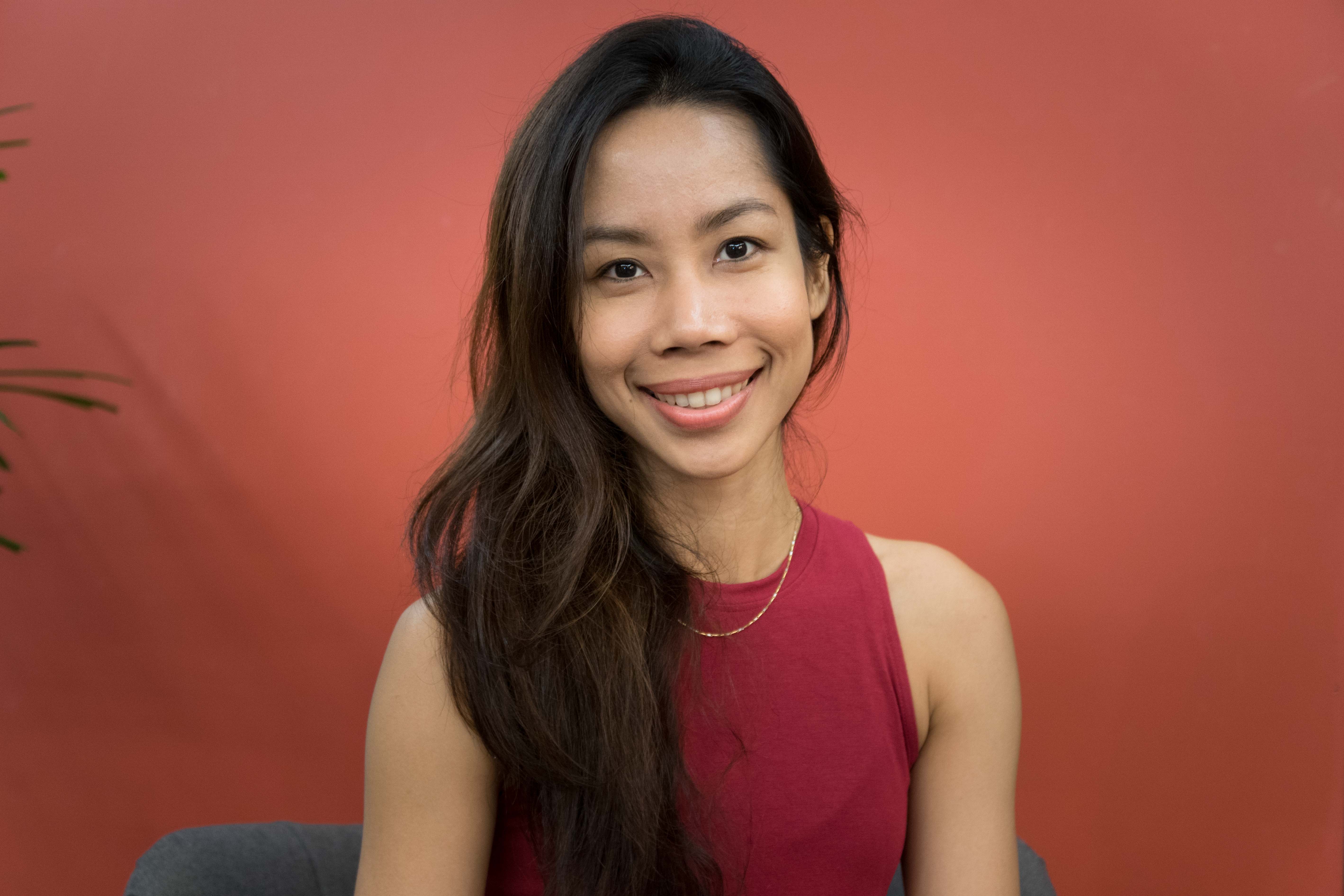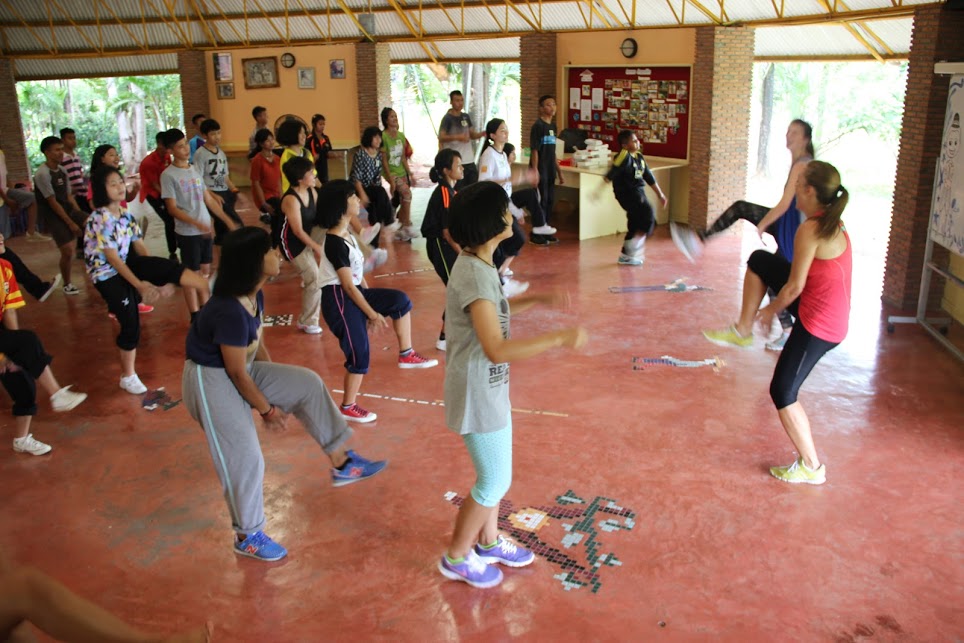As the group completed their yoga poses, some giggled and collapsed on the floor, tired but happy at the end of the 90-minute class.
Their teacher cracked jokes as they grinned and promised to practice their positions before their next session.
This was a yoga class with a difference. The participants were not the typical Lululemon-clad devotees, dashing to their class with an organic juice in hand. They were shy, unassuming children and teenagers orphaned by HIV and AIDS.
Their instructor had come to their home at the BaanGerda shelter in Lopburi as part of a bimonthly activity day involving mentoring, stretching, dancing, and a vocabulary tournament.
“I was surprised by the kids’ enthusiasm,” said yoga teacher Surang Sengsamran, also known as Yok, who started teaching the BaanGerda children this summer.
“They put their heart and soul into each activity, and I can really feel their energy. They are really positive and I love seeing the joy in their faces.”

Introducing the kids to yoga was the brainchild of Cel Bitong, who is in charge of organizing the program of extracurricular activities for the shelter.
“At the shelter we support the children in various ways, including promoting health. We want them to be physically active and keep their bodies healthy, and we also want to challenge them,” she said.
Opened in 2001 by German-Thai couple Karl and Tassanee Morsbach, BaanGerda houses 70 children left orphaned by parents who have died of HIV, the majority of whom are infected themselves with the virus.
They are among the estimated 6,900 children living with HIV in Thailand, according to UNAIDS.
Although the country has made significant progress in targeting the disease, reducing the rate of HIV transmission from mother to child, and slashing the new HIV infection rate among children by 40% from 2010 to 2014, the children of BaanGerda still face prejudice and discrimination, with some of the villagers and their children shunning them.

“Now it seems that society [is] more understanding and accepting [of] people who are HIV infected, but if they can avoid it, they would prefer not to become involved with them,” said Kwan Jai Tse, secretary of the BaanGerda foundation.
“Kids are not willing to disclose that they are HIV-infected when they are at school or in other parts of society.”
This can be hard work for the volunteers, who say it’s not easy for the children to open up to them and trust them.
“They’re already traumatized from losing their parents, and in some cases their relatives also reject them,” Cel explained.
“Sometimes volunteers may come for one visit then don’t come back again. So it takes time for them to open up to you and realize you’re not going anywhere.”

“Some of their stories are heartbreaking,” added Yok, visibly saddening as she talked about meeting a 13-year-old boy at BaanGerda, who had told her that he wanted to grow up to be a teacher.
The next time she saw him he had started to go blind from the disease, within months of losing his father.
“Some of the kids have really low self-esteem and a lack of confidence,” she said.
“But the key is to treat them like normal kids — don’t pity them, don’t treat them differently, and don’t express sadness.
“They’re still kids that like to have fun.”

So far the children have “had a blast” doing yoga, Cel said, with Yok mindful of devising a program gentle enough for their weakened immune system and joints, and fragile bones susceptible to osteoporosis, but still challenging and enjoyable.
“Some of the kids thought yoga might be boring, but I think it depends on how you approach it,” Yok said.
“Yoga is not just about the physical side, it’s also about the mind-body connection.
“I think having that awareness and accepting their condition can help them when they go out into the world, and lift up their self-esteem.
“Life is fast — yoga can help them be calm and still.”
With the shelter and government sponsoring the children for costs of education and medication, the volunteers have high hopes that the BaanGerda children can go onto technical schools or universities and have a chance at a bright future.
Cel said: “We want to empower these kids and make them confident and independent.”
Kwan Jai said the shelter would always provide support and a “warm home” for HIV-infected orphans.
BaanGerda would support them “until they find their own paths in society and can stand strongly on their own for their future,” she said.
“I hope the kids will carry on my yoga project, teaching their kids or families not just how to be physically active, but to be at peace with their body,” Yok said.
“I want them to play with their friends, dance, go out into society, and pass on good things to others.”
BaanGerda still needs donor support for running costs, food, medicine, and education for the children, as well as adding to their library. To donate cash or books, please email k.moo@baangerda.org, telephone +66 2 9828324, or visit baangerda.org for more details.




